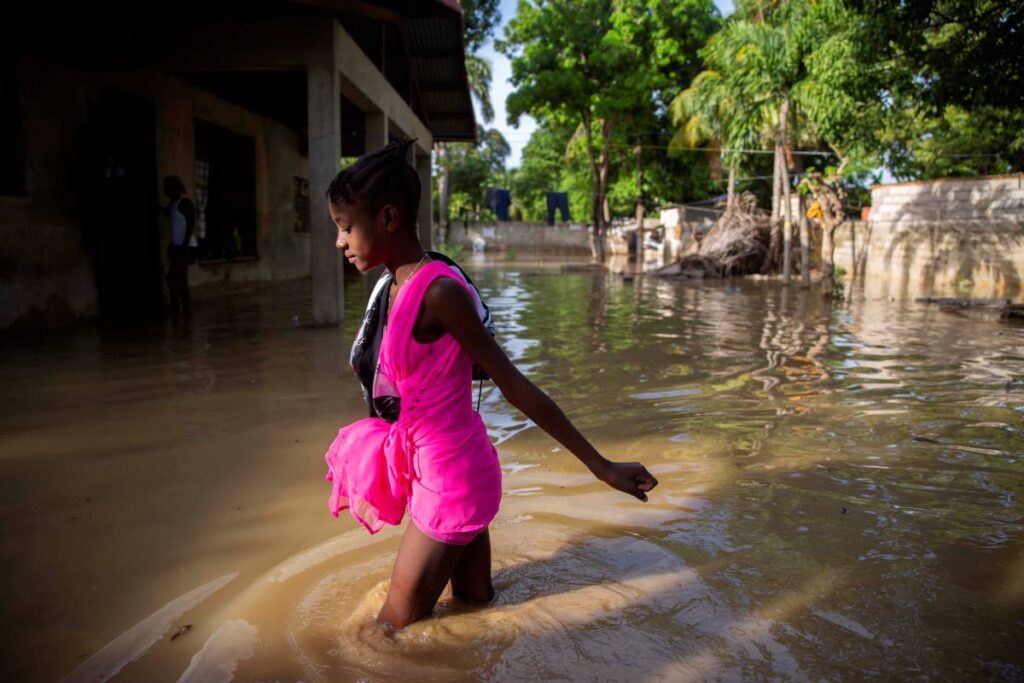Climate action in the Caribbean

There are three things that we in the Caribbean must get behind. Here’s why and how urgently this action is needed.
Working Group III (WG3) of the Intergovernmental Panel on Climate Change (IPCC) released, on April 4, the third of a trilogy of reports which together form the Sixth Assessment Report (AR6). WG3’s report is focused on what we can do to decrease or moderate global warming and titled Climate Change 2022: Mitigation of Climate Change.
The 2913-page report is the culmination of global effort by 278 scientific authors and 65 governments (41 per cent of which are developing countries) to reach consensus based on more than 18,000 scientific papers and the resolution of more than 59,000 review comments on the scientific, technological, environmental, economic and social aspects of mitigation of climate change.
This report complements all the previous work, including the reports by Working Groups I (the State of Global Warming) and II (Climate Risk and Adaptation), which were published in November 2021 and March 2022 respectively. This third report will be followed later this year by a synthesis report.
In introducing the report last Monday, UN secretary general Antonio Guterres did not mince his words and left no doubt about what the "verdict of the jury" is: “We are on fast track to climate disaster.”
This will be an unlivable world that will include major cities under water, heatwaves, and terrifying disasters.
On paper the world’s governments have committed to doing all that is possible to limit the earth’s warming to 1.5 degrees above pre-industrial levels by 2100.
The reality of what is currently happening is very different. We are on track towards a world that will be 3.2 degrees warmer than in pre-industrial times – so we are on track to overshoot our target by more than 100 per cent.
The biggest problem is the so-called “emissions gap,” which is already large and growing. Every government knows that the world needs to cut greenhouse gas (GHG) emissions by 45 per cent over the next eight years to have a chance to stay within the 1.5 degree limit.
Instead, based on the current pledges we are increasing emissions by 14 per cent this decade.
What makes this even worse, Mr Guterres points out, is that “high emitting governments and corporations are not just turning a blind eye – they are adding fuel to the flame!…Some governments are saying one thing, but doing another. Simply put, they are lying.”
The very few with vested interests in historical investments in fossil fuel are “choking the world,” when there are cheaper, renewable solutions that provide green jobs, energy security and greater price stability.
Countries that are increasing the production of fossil fuels at this time, and not the young and vocal climate activists, are the truly dangerous radicals.
“Investing in new fossil fuels infrastructure is moral and economic madness,” says Mr Guterres.
We are in a full-blown “climate emergency” at the time when we, the world, are still recovering very unevenly from the covid19 pandemic, rising inflation; and the war in Ukraine is leading to rocketing food and energy prices.
What are three practical messages that everyone in the Caribbean can act on?
First, all emissions are actually contributed by the actions of individuals and organisations. All types of organisations, including business, should take responsibility for what they are doing and not try to shirk responsibility by trying to shift all responsibility to individuals.
A study published by the European Corporate Governance Institute on April 6 shows when thousands of manufacturing facilities were simply mandated to report greenhouse gas (GHG) emissions in the US in 2010, emissions were reduced by 7.9 per cent.
Climate change is already being hugely disruptive and this will increase. Physical risks and transition risks harbour not only large threats but also opportunities to grab.
Second, we can only solve this climate emergency with collective action. Our current predicament is literally fuelled by public policy and requires collective action to solve. We need collective policies to accelerate to the required speed and scale.
The report makes it clear that we need to accelerate (threefold) our shift to renewable energy and remove all current subsidies to the fossil fuel industry immediately. It provides a thorough and detailed feasibility assessment of different mitigation options across six different dimensions for energy, demand and services, transport, cities and urban areas buildings, industry, land use, how to close the investment gap, carbon dioxide removal, technology and innovation. International co-operation, national and sub-national policy options are also assessed and guidance for the enabling conditions is provided.
While it is true that the gap is still increasing and we are heading towards disaster, the rate of increase has decreased and there is increasing evidence of climate action. There are countries that have achieved a steady decrease in emissions consistent with limiting warming to two degrees. Zero emission targets have been adopted by least 826 cities and 103 regions.
Third, it is clear that our Caribbean contribution to climate change is very small when compared to others. The threats for small islands, however, are grave. North America has the largest historical cumulative net anthropogenic CO2 emission from 1850-2019, followed by Europe and Eastern Asia.
Latin America and the Caribbean have proportionally the highest contribution to climate change from land use changes and forest destruction. Trinidad and Tobago has one of the highest emission rates per capita.
Investment in adaptation to climate change needs to be a very high priority for the Caribbean. The IPCC Working Group II report released last month provides critical guidance for that. That report also showed that adaptation and mitigation are complementary and to an extent even necessary for each other. While we all need to advocate for attention to policies and cooperation at all levels – between individuals to organisation, the cities, regions countries, and internationally, it is also in our best interest (in the short, medium, and long term) to find ways to contribute to sustainable development, individually and collectively.

Dr Axel Kravatzky is managing partner of Syntegra-ESG Ltd vice-chair of ISO/TC309 Governance of organizations, the co-convenor and editor of ISO 37000 Governance of organisations – Guidance. He is currently the project leader for ISO 37006 Indicators of effective governance. Comments and feedback that further the regional dialogue are welcome at axel.kravatzky@syntegra-esg.com.


Comments
"Climate action in the Caribbean"